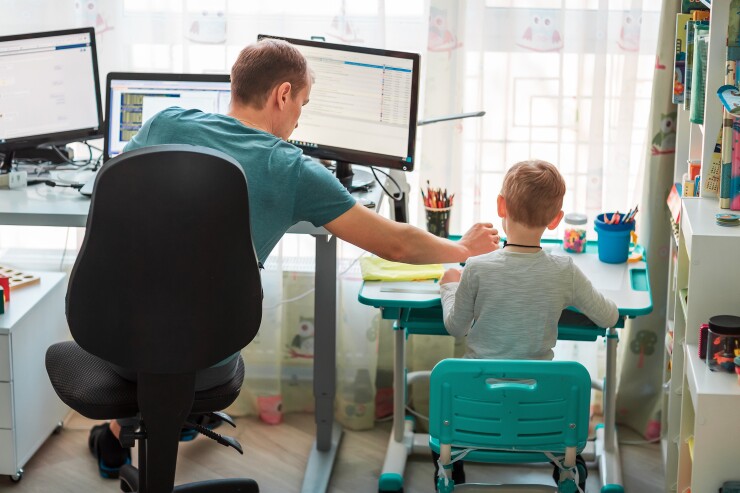For working parents such as
"Sometimes I won't be immediately reachable or able to take on things other than top priorities," her signoff reads, while also noting "I'm still doing good work + meeting deadlines."
She's among the parents who are trying to balance their professional workloads with kid-related events, which are ballooning as schools race toward the end of the year and extra-curricular activities host their annual recitals and ceremonies. To explain absences and address the potential for productivity to slip, some parents are being extra vocal about their obligations. Others are pre-emptively discussing their time constraints with their managers, while some workers are building extra flexibility into meetings and other processes.
Read more:
The issues are only going to get worse in the summer, parents say, when child care gets even scanter.
A lack of affordable child care is estimated to cost workers and companies
Family obligations inevitably leave less time for work. "Imagine trying to cram 50 hours a week of work or more into 30 available hours," said Stark, who is co-director for the Center for Business and Social Justice at the consulting firm BSR in Washington. "And imagine having a sense week-to-week that anything could happen in the next week that will upend the entire schedule."
Read more:
To get ahead of the issue and set an example for others, she said she clearly marks school and summer camp pick-up and drop-off times for her kids, ages 10 and 14, for all to see in her calendar.
It's a big change from previous corporate culture, said
"Previously, people would have tried to hide why they were leaving early, why they couldn't take a call at that time," said Schonfeld, who is in the midst of her own onslaught of end-of-year events for her children, ages 7 and 9. Now, "everyone that reports to me knows that I will have this challenge this summer, and I know that they will have those challenges this summer. It's not a secret on each other's calendars."
U.S. parents' struggles can come as a surprise to colleagues in countries such as Sweden and South Korea, which
Read more:
Not all organizations are accommodating to parents' needs. Kyte Baby, a baby gear brand that on its website says "
Some executives are trying to create a more family-friendly work environment by setting an example with their own scheduling transparency.
Read more:
"You need to set the example. Those little things allow people to say, 'Oh, Camilla's doing that, so I can do that too,'" she said, adding: "As long as you know what needs to get done and you are very clear and upfront, then we can balance all those things."
Schonfeld said she tries to be mindful of her employees' schedules and allow them flexibility where needed. "Some people aren't going to make that 9-to-5 this summer, and that's absolutely okay with me as long as things are getting done," she said. On one recent call, Schonfeld told potential clients that one of her team members would be in listen-only mode because he had to drive his daughter to lacrosse. "Everybody understands and respects that," she said. "I don't think it's as taboo as it used to be."






